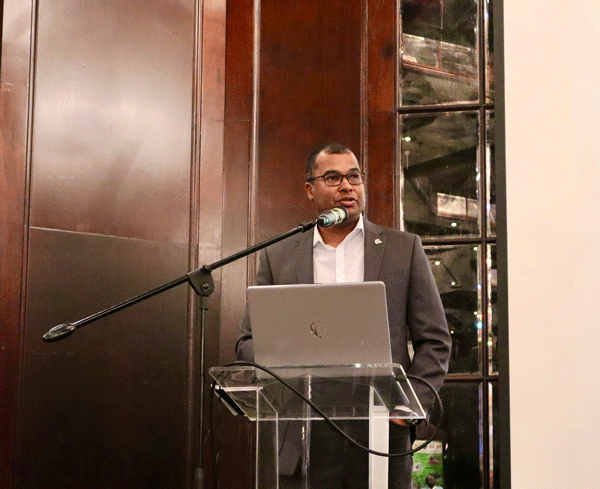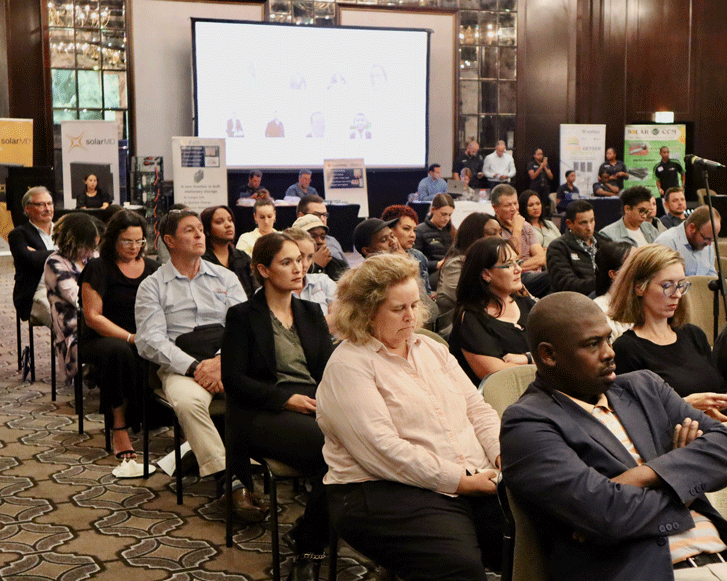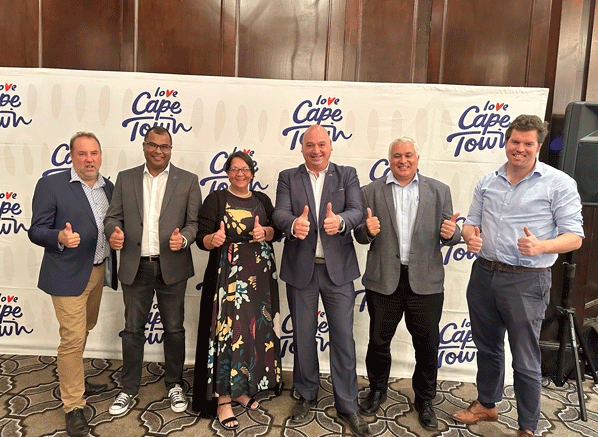An urgent energy discussion was recently convened with local tourism businesses to engage on the issue of outages and current steps being taken to mitigate sector disruption. The meeting was convened by Cape Town Tourism and the City of Cape Town.
Local stakeholders heard how Cape Town Tourism is supporting its members and working steadfastly to attract global tourists to the city, along with Mayoral members’ plans to attract investors in the green economy sector, create jobs through solar panel demand, and pay ‘cash for power’.
Urgent energy discussion
Speakers included Cape Town Tourism CEO, Enver Duminy; the City’s Mayoral Committee Member for Economic Growth Alderman James Vos; and Mayoral Committee Member for Energy, Councilor Beverley van Reenen.
In its recent Cape Town Powering On 2023 survey of local tourism businesses, Cape Town Tourism found 81% of participants said they are affected by load shedding, with 56% solely reliant on the electricity supply to operate.

Duminy said this demonstrates the urgency of the energy gathering, “We know that the erratic outages are causing continued stress and business disruption for local tourism businesses. Our survey showed 30% of participants have no additional source of electricity. About 70% said they are investigating alternative energy sources. These are not cheap, with the initial installation coming with a hefty price tag.
“We convened the energy discussion to engage with our industry and assure them that we are actively seeking ways to mitigate disruption. We will continue to partner with our members to help them navigate new solutions like the ‘cash for power’ initiative. We will also do everything we can to keep our destination top of mind with global travellers. Attracting visitors to our shores is the best way for us to catalyse tourism recovery and readiness and put much-needed cash into our local business people’s pockets.”
In 2022, the rolling blackouts were conservatively estimated to cost the country at least R15 billion. Load shedding is now a 16-year-old crisis, which has embedded considerable resilience; the challenges over the last few years have made the nation strong and bred a particular innate ingenuity. However, the current situation is untenable and the City is at the forefront of finding smart, sustainable solutions.
Limiting loadshedding
The City has been able to limit some loadshedding by building up reserves from the Steenbras Hydro Pumped Storage Scheme. There’s also a 500MW tender to buy power on the open market, which should open on 29 March. This will capacitate the Cape Town grid and provide protection against at least four stages of load-shedding across the next three years, according to Councilor van Reenen. It is a pivotal part of the Mayoral Priority Programme.
Partnering with GreenCape
The City has partnered with GreenCape to boost the regional green economy and attract investment in the green economy sector. Speaking to the green economy, Alderman Vos said that there’s never been a more critical point to make real commitments to the vast energy opportunities of renewables. “Investment in these sectors is good for business, people, and the planet, and, therefore, the City and our partners stand ready to work with industry, so that we can make Cape Town the easiest place to do business in Africa.”
Councilor van Reenen additionally touched on the City’s plans to pay cash for power, which should go into effect by June. This complements Minister Godongwana’s announcement that businesses can reduce their taxable income by 125% of the cost of an investment in renewables. Furthermore, the Bounce Back Loan Guarantee Scheme will soon guarantee solar-related loans for small and medium enterprises.

Duminy added, “The discussion demonstrated how we, at Cape Town Tourism and the City continue to determinedly work to find long-standing solutions to the outages. We must make sure these efforts are seen worldwide, so Cape Town is recognised as a leader and pioneer – and the destination of choice for global travellers, especially in our key source markets.
“Cape Town is, luckily, a city of unparalleled natural beauty, so load shedding may not significantly hamper our foreign tourists, but it does have a lasting impact on our small businesses. We need to help incentivise our tourism businesses to lower their usage while setting themselves up for minimal business interruption. That’s how we instil resilience for the long-term.”
THIS ARTICLE WAS COMPILED BY ATMOSPHERE PR


